If you’re trying to build muscle, you are likely hitting it hard in the gym to achieve your desired gains. However, as a nutritionist and trainer, I have seen time and again that it’s hard to see any real progress unless effort is being made with your diet as well. So, what changes do you need to be making to see the best results?
Dr. Noel Abood, co-founder of Re:vitalize Weight Loss, has shared his expert advice with us when it comes to the best foods for muscle growth. Keep reading to learn exactly what to include in your weekly meal plan.
Lean protein
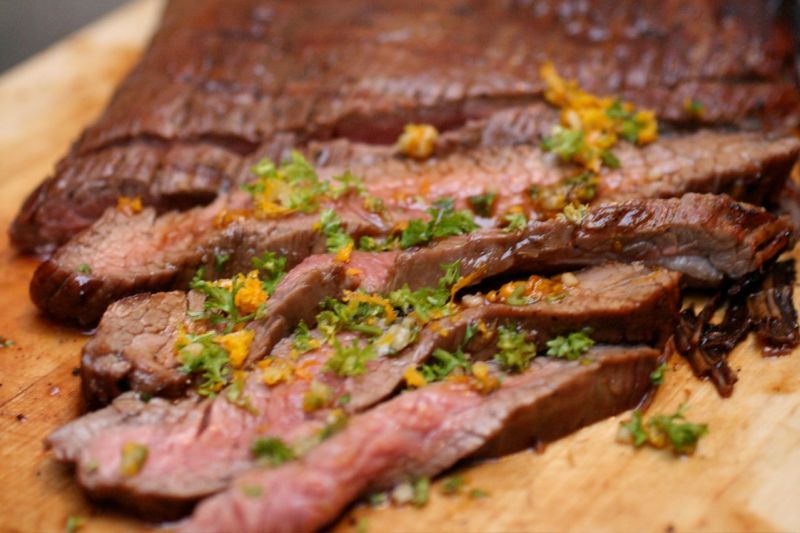
“Speaking from experience,” Dr. Abood said, “I think many active adults or people trying to build muscle are under-consuming when it comes to protein. For me, it is very easy to run to other food groups to fuel myself and then look at my day and realize the amount of protein I’m eating is not commensurate to my activity level and goals.”
Thankfully, there are tons of lean protein options available. Chicken breast is packed with protein at 40 grams per cup. It is also one of the most versatile ingredients on our list and the star ingredient of many delicious recipes. Salmon is another protein-packed option, boasting inflammation-reducing omega-3 fatty acids. Salmon also contains a good deal of potassium, which will help with muscle cramps after those especially strenuous workouts.
While fatty cuts of beef like ribeye are delicious and full of protein, they do carry more calories than many other options you can find at the butcher counter. Some great options for leaner cuts are top-round roast, sirloin, and flank steak. Lean beef also provides a healthy dose of iron and zinc, both crucial for post-workout recovery.
Whole grains

“Whole grains such as brown rice, quinoa, and oats provide complex carbohydrates, which are essential for energy to fuel your workouts,” Dr. Abood noted.
Quinoa, especially, has risen in popularity in recent years due to the extensive health benefits it provides. Quinoa is high in protein, amino acids, vitamins, minerals, fiber, and antioxidants. Not only that, but it is naturally gluten free. Quinoa is also known as a complete protein in that it contains both fiber and complex carbohydrates. Eating it after a workout can help to repair, protect, and rebuild muscle. No wonder this humble little seed is so popular.
Nuts and seeds
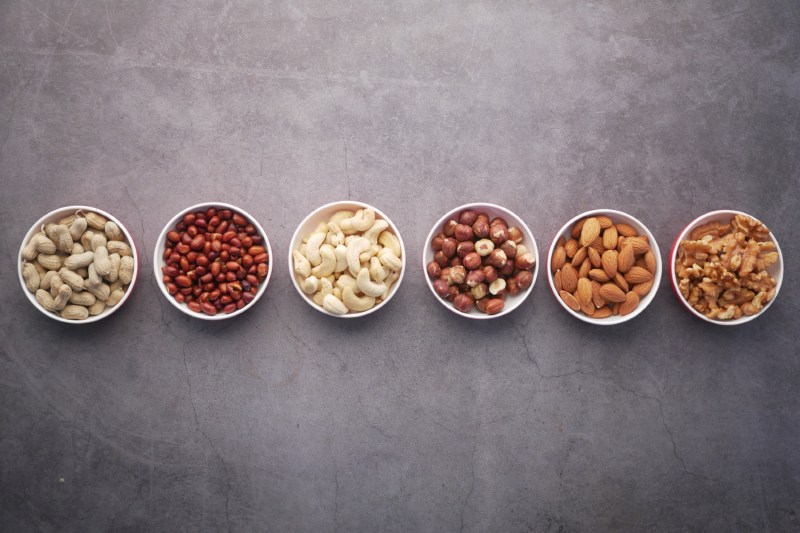
An easy snack to toss in the gym bag, nuts are not only convenient but packed full of protein and healthy fat. A good mix of nuts will provide your post-workout body with many essentials like magnesium, omega-3 fatty acids, and vitamin E.
Some good nuts to eat to help build your muscle are almonds, which are high in protein; walnuts, which are high in omega-3 fatty acids; and pistachios, which contain more protein than an egg per 1/4 cup serving. “Nuts and seeds are rich in healthy fats, fiber, and protein, making them an excellent snack for muscle building,” Dr. Abood stated.
Fruits and vegetables

“Fruits and vegetables are packed with vitamins, minerals, and antioxidants, which help support muscle health and recovery,” Dr. Abood noted.
This is especially true when one gets a good assortment of different fruits and vegetables. Some of the better fruits and vegetables to focus on to help you reach your muscle-building goals are:
- Oranges
- Apples
- Bananas
- Grapes
- Pears
- Peaches
- Watermelon
- Berries
In addition to fruits, some of these vegetables are beneficial for muscle growth:
- Broccoli
- Spinach
- Tomatoes
- Green beans
- Cucumber
- Zucchini
- Asparagus
- Peppers
A good goal is to try to eat as many colors (of fruits and vegetables, not M&Ms) as you can every day.
Greek yogurt

Protein-rich Greek yogurt is packed with Vitamin D, which aids in the body’s absorption of phosphorus and calcium. However, not all Greek yogurts are the same. Some Greek Yogurts, especially the flavored ones, can be high in sugar, look for yogurt with a low sugar content, or no sugar content. You can always add some fruit or a natural sweetener for taste later. Also, Greek yogurt made with real full-fat milk will be higher in protein.
Abood also reminded us, “Greek yogurt is a great source of protein and calcium, which are both essential for building and maintaining strong muscles.”
Even more muscle-building options
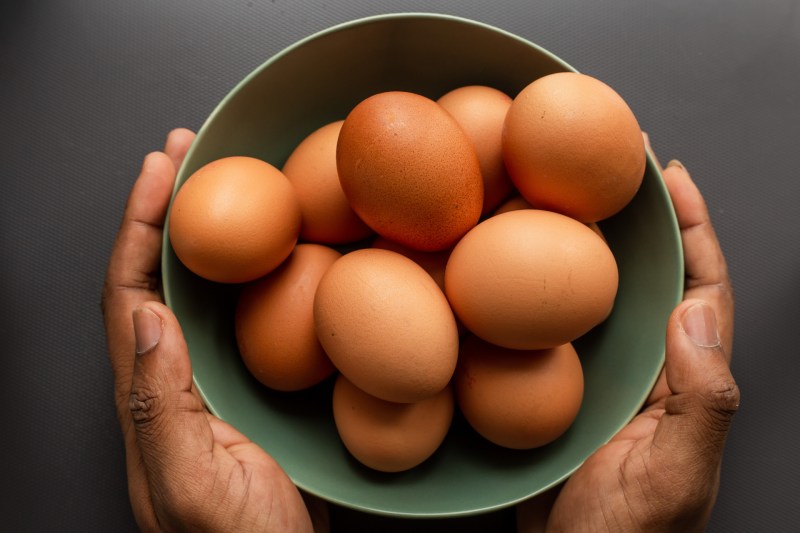
Whole eggs
Egg whites have always been popular in low-calorie diets, but if it’s muscle growth you’re after, you’ll want to whisk in the yolk. Whole eggs are powerhouses of protein, healthy fat, and vitamins.
Lentils
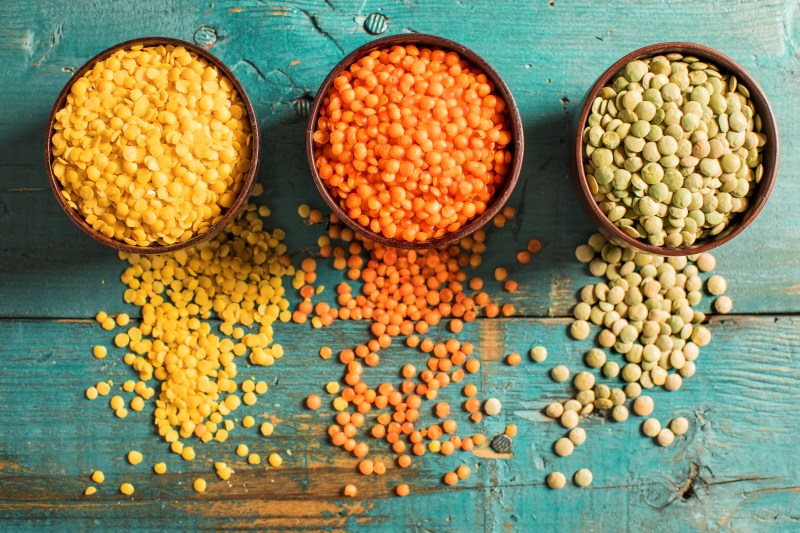
A great option for those sticking to a plant-based diet, lentils are a tremendous source of protein at 9 grams per half cup. They also contain plenty of fiber, carbohydrates, and minerals, in addition to amino acids.
Cottage cheese

Paired with fruit, cottage cheese is a wonderfully protein-rich breakfast at 14 grams per half cup. It also is high in calcium, helping to support strong bone health.
Soybeans
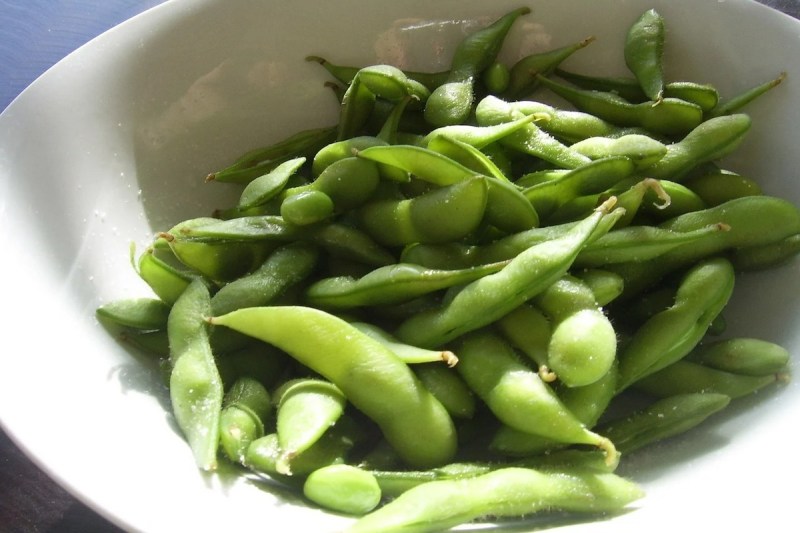
Another wonderful meat-free protein source, soybeans are great for muscle growth. Containing all nine amino acids and packed with 6 grams of protein per half cup, these little guys are the perfect muscle-building snack.
How do I build muscle quickly?
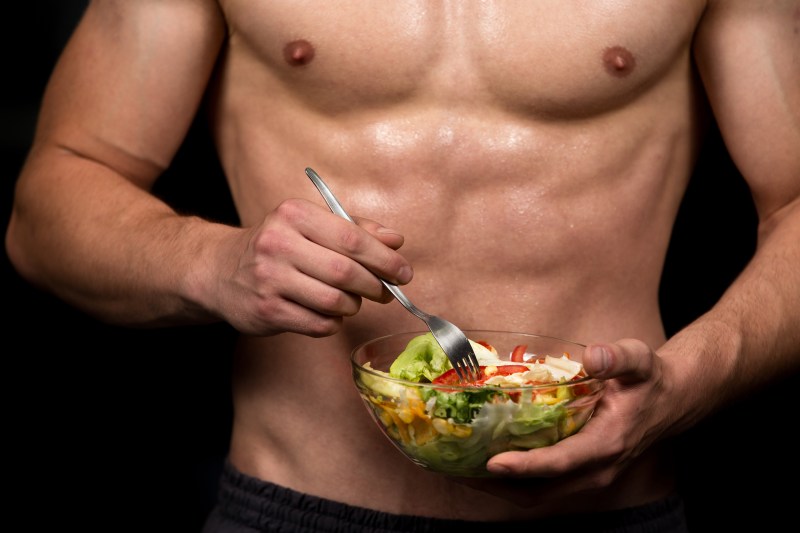
One of the most crucial factors in gaining muscle quickly is also one of the most difficult to get used to. In a culture that’s so often obsessed with eating less, it feels unnatural to eat more to get the body we want. The truth is that in order for your body to make muscle; it needs to know that it isn’t starving to death. When we deprive our bodies of the calories they need, they store any and all extra calories ingested as fat, thinking it has nothing to spare.
In order for your body to understand that you’re trying to pack on the muscles, you need to reassure it that it’s going to get all the fuel it needs in order to do so. For quick muscle growth, you’re going to want to add an extra 250 to 500 calories to your daily intake.
Unfortunately, muscle growth isn’t an overnight process. It can be frustrating to spend hours both in the gym and in the kitchen only to be discouraged after a few weeks of no noticeable progress. Rest assured, though, that if you’re eating the right foods and amping up your strength training, visible results should appear within eight weeks, depending on your fitness level. Stick with it and try to be patient.
What are the three requirements for muscle growth?
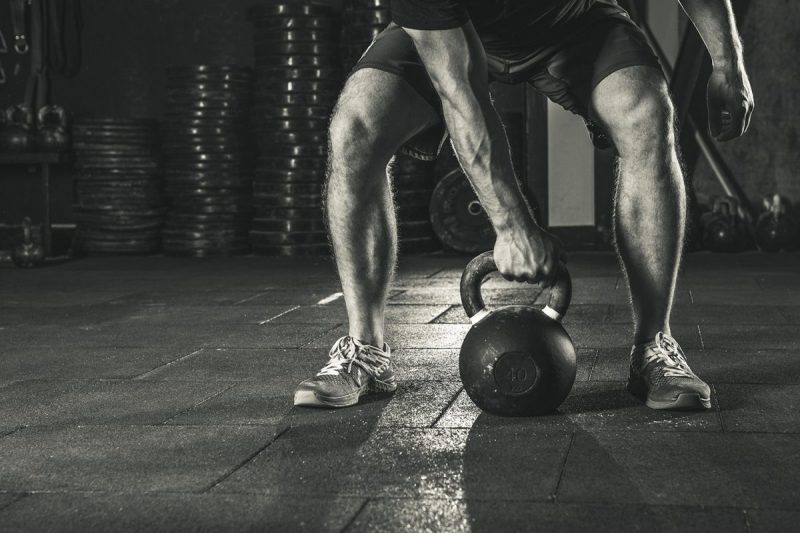
The three requirements for the body to grow muscle are simple. Eat, train, and sleep. Be sure to get enough of the protein and vitamin-rich foods listed here to ensure optimal muscle growth. Pair this improved diet with strength training that challenges you, and be sure you’re getting enough Zs. When we sleep, our bodies release amino acids, which help build protein.
Growth hormones are also released during sleep, which helps repair muscle after a workout. So don’t skimp on that time between the sheets. Shooting for a goal of at least seven to eight hours of sleep every night not only helps your muscle growth, but also makes you feel more rested and ready to work out again the next day.
More tips for building muscle

As we said earlier, the three requirements for muscle growth are eating properly, getting enough sleep, and training. And as men get older, that becomes even more important. According to Harvard Health, as men get older, they start to lose muscle. In fact, some men can lose up to 5% of their muscle mass every 10 years after they turn 30, so keeping up with your training, especially weight training, is vital.
One thing that Harvard Health recommends is using more free weights to build muscle rather than relying on those fancy machines you see at the gym, as those types of weights, such as barbells and dumbbells, do a better job at building muscle.
Rest is important as well, so you allow your muscles to recover from a workout. Try to give whatever section of your body you concentrate on in a particular workout (legs, arms, upper body, etc.) at least two days of rest before working that part of your body out again.
Frequently asked questions

How can I bulk in seven days?
You would approach bulking in seven days like you would any period. However, you want to keep in mind that visible change will be minimal in such a short period of time. Still, you can put your efforts toward eating in a calorie surplus and focusing on nutrient-dense foods and high-quality proteins. Aim for a minimum of three strength training workouts in a week and use compound exercises to maximize muscle development. Getting enough rest and staying hydrated is also essential.
What can I drink to gain muscle fast?
To gain muscle quickly, focus on drinking high-protein beverages like protein shakes made with whey or plant-based protein powders. Adding milk or a milk alternative can help boost calories and protein as well. Also, consider smoothies with fruits, oats, nut butter, and Greek yogurt for an efficient way to get in additional calories and nutrients.




